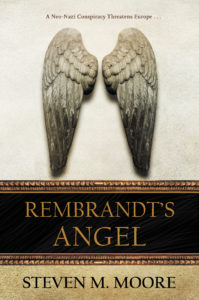Being vulnerable…
One thing I don’t mention in my little course “Writing Fiction” (a free PDF readers and writers can download—see my web page “Free Stuff & Contests” at this website) is that authors need to be vulnerable—in other words, no author can see how readers react to their work if the author doesn’t conquer their fear and let readers see it. You can’t say you’re a writer until you do that.
Even if it’s only a critique group or Wattpad (or, if you have a website, a place where readers can download samples of your writing), you’re not a writer until you swallow that fear. Yeah, I know—new authors say to themselves, “Will anyone like my X?” where X could be any writing sample—essay, memoir, short story, novella, novel…you name it. Losing that fear is required for all would-be writers from ten to one hundred. It’s a common fear for all of us—I feel it for every story my wacky imagination creates—even after publishing many stories. I don’t think it’s peculiar to only introverts, but maybe for us, it’s more common.
Early on, I perhaps developed a masochistic attitude. It could be summarized by “Oh, what the hell? Let’s see what readers think.” From my first novel Full Medical (2006…now with an ebook second edition) and beyond, I’ve said that. Maybe here’s a better way to say it: “Being vulnerable…isn’t about displaying your emotional life. It has to do with attaching your reputation to a project when there is a risk of failing publicly.” A story begins as a project; publishing it creates the risk. (The second quote is not mine. I won’t specify who stated this mantra that works so well for new authors. The first five readers that tell me who did state it will receive the complete “Clones and Mutants Trilogy”—Full Medical, Evil Agenda, and No Amber Waves of Grain—or The Chaos Chronicles Trilogy Collection, a three-book bundle.)
I suppose that first small step is a big one (with apologies to Neil Armstrong). Initially, before my first novel, I thought about taking the easy way out. While one way is to use critique groups (Wattpad didn’t exist back then), I’d heard that was a mixed bag. “The more experienced authors lord it over the newibies,” author friends would say. Or, “Authors in the groups try to make you write like them.” (MFA programs built on the critique group concept have the same problems, of course, with the prof often joining the guilty parties.) I’ve had enough bad experiences that I avoided critique groups and no longer participate on Wattpad.
I then chose a way that is a lot more difficult: I looked for an agent. I don’t know if agents realize how crushing their form rejection letters and emails can be. Looking back, I can try to be gracious and say they were like a blacksmith’s blows turning me into tempered steel strong enough to resist the urge to abandon my publishing aspirations. Or I could just say they don’t know what they’re talking about. Andy Weir, who wrote The Martian, just offered an early version of his story on his website, like any participant of Wattpad does (or like I do with my free fiction). I don’t know if he even thought about having an agent, but maybe he ran the same gantlet I did. Hugh Howey, of Wool fame, was tentative about putting his writing out there too. Neither author could have predicted the enormous response to their stories (at the time of writing this post, Weir’s book has 30,595 reviews on Amazon, Howey’s 13,825). I guarantee you that no agent could have predicted that response either. (If Weir or Howey submitted to agents, I bet they’re practicing self-flagellation now like that guy in The Da Vinci Code.) Agents and publishers are supposed to determine the marketability of a book, i.e. how many readers it will have, but no one, absolutely no one, can predict that, even for authors who have already published many books.
Returning to the quote, what defines failure? Is it not having the book become a NY Times bestseller? Or not receiving the Nobel Prize for Literature? As authors, we have to decide how we define personal failure, because it’s opposite is personal success. In that sense, here’s the way I see it: failure only occurs with our writing when we fear reactions of readers so much that we don’t let readers see it! Success is putting it out there so they can, however we do it.
So let me proffer another mantra: Your work is a success if just one reader reads it and likes it. It’s a failure if no one sees it. So writers, especially new ones, must let readers see your stories. Good things can happen…or not. But letting readers peruse your stories is already a success.
***
Comments are always welcome.

Rembrandt’s Angel. “She learned the Titus in the painting was Rembrandt’s only surviving son. I can see where a father might think his son is a good model for an angel.” Ex-MI6 agent and current Scotland Yard Inspector Esther Brookstone becomes obsessed with recovering a Rembrandt painting stolen by the Nazis in World War II. Interpol agent and paramour Bastiann van Coevorden tries to control her obsession and keep her safe. Their quest to recover the painting leads them to an international conspiracy that threatens Europe. Published by Penmore Press, this mystery/thriller is available in ebook and print format from Amazon and as an ebook version from Smashwords and its affiliated retailers (iBooks, B&N, Kobo, etc.) Also available from the publisher or your local bookstore (if they don’t have it, ask for it). A sequel is on its way!
Around the world and to the stars! In libris libertas.
